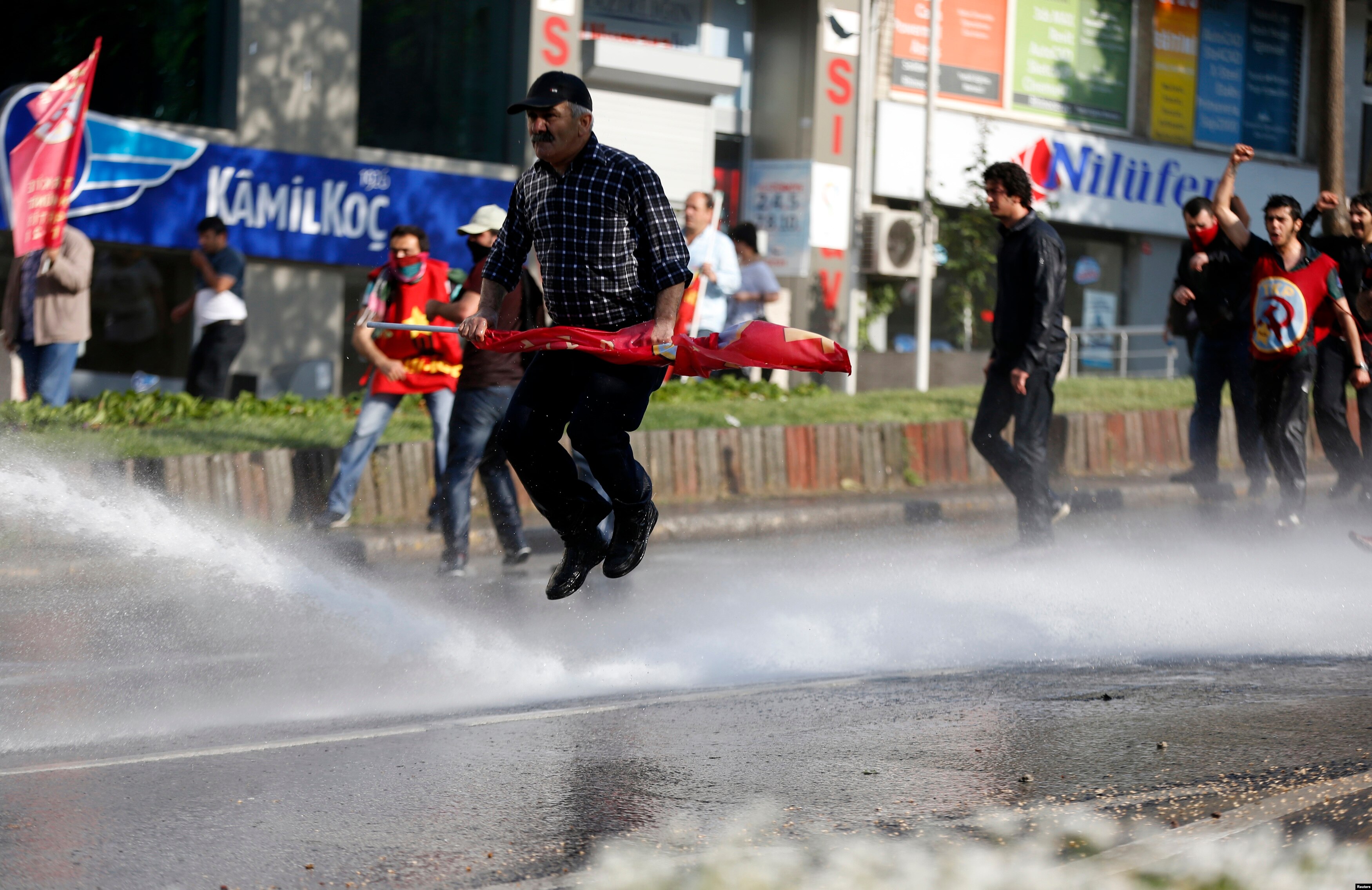Clashes Roil Istanbul as World Marks May Day
May 01, 2013
LONDON — Police in Istanbul have clashed
with May Day demonstrators. The protestors were trying to reach the main
square, where a planned demonstration had been banned. Elsewhere in
Europe, May Day rallies were peaceful.
In Istanbul, police used tear gas and water cannon to disperse demonstrators.
The government had banned a rally in Taksim Square, which is undergoing renovation. They said the ban was for security reasons, and clashes began after hundreds of people tried to bypass barricades around the square.
Ercan Karakas, a member of main opposition Republican People's Party, was there. He said May Day has been celebrated peacefully before by thousands of people and no one suffered, because May Day celebrations were not prohibited by the government. Prohibition, he said, always leads to clashes.
In Istanbul, police used tear gas and water cannon to disperse demonstrators.
The government had banned a rally in Taksim Square, which is undergoing renovation. They said the ban was for security reasons, and clashes began after hundreds of people tried to bypass barricades around the square.
Ercan Karakas, a member of main opposition Republican People's Party, was there. He said May Day has been celebrated peacefully before by thousands of people and no one suffered, because May Day celebrations were not prohibited by the government. Prohibition, he said, always leads to clashes.
 A May Day protester jumps away from a water cannon during clashes between riot police and protesters trying to break through barricades, Istanbul, Turkey, May 1, 2013.
A May Day protester jumps away from a water cannon during clashes between riot police and protesters trying to break through barricades, Istanbul, Turkey, May 1, 2013.
..
International Workers' Day, which is commonly known as May Day,
celebrates the international labor movement. It’s a national holiday in
more than 80 countries around the world.
Elsewhere in Europe, demonstrations to mark the annual celebration went peacefully.
In Greece, workers marked May Day with demonstrations and a 24-hour strike that hit transport systems and hospitals. In the capital Athens, thousands protested against government spending cuts and tax hikes.
Kostas Tsikrikas, president of the Confederation of Civil Servants trade union, said his organization would continue to battle against austerity. He said Greeks will continue to fight to overturn this unfair and dead-end policy that is destroying millions of jobs on a national and European level and is driving large swathes of society to poverty and destruction.
The Greek government is implementing a tough austerity policy spurred by its international lenders.
Spain, Greece struggle
The European Union and the International Monetary Fund have pledged 240 billion euros - or nearly $320 billion - to Greece since 2010. Greece remains mired in trouble, however, and now is in its sixth year of recession.
Alexis Tsipras, leader of the opposition party Syriza, joined Wednesday’s protest. He said the government had gone too far with its austerity measures, and that it is the workers on the frontline who will rebuild the Greek economy.
In Spain, the two largest trade unions urged workers and the unemployed to join over 80 demonstrations.
It was reported this week that Europe’s unemployment rate has reached an all-time high. Within the 17 countries that use the euro, 12.1 percent of the population, or 19.2 million people, now are unemployed.
In Greece and Spain, the numbers were highest - hovering at about one-quarter of the population in each country.
Elsewhere in Europe, demonstrations to mark the annual celebration went peacefully.
In Greece, workers marked May Day with demonstrations and a 24-hour strike that hit transport systems and hospitals. In the capital Athens, thousands protested against government spending cuts and tax hikes.
Kostas Tsikrikas, president of the Confederation of Civil Servants trade union, said his organization would continue to battle against austerity. He said Greeks will continue to fight to overturn this unfair and dead-end policy that is destroying millions of jobs on a national and European level and is driving large swathes of society to poverty and destruction.
The Greek government is implementing a tough austerity policy spurred by its international lenders.
Spain, Greece struggle
The European Union and the International Monetary Fund have pledged 240 billion euros - or nearly $320 billion - to Greece since 2010. Greece remains mired in trouble, however, and now is in its sixth year of recession.
Alexis Tsipras, leader of the opposition party Syriza, joined Wednesday’s protest. He said the government had gone too far with its austerity measures, and that it is the workers on the frontline who will rebuild the Greek economy.
In Spain, the two largest trade unions urged workers and the unemployed to join over 80 demonstrations.
It was reported this week that Europe’s unemployment rate has reached an all-time high. Within the 17 countries that use the euro, 12.1 percent of the population, or 19.2 million people, now are unemployed.
In Greece and Spain, the numbers were highest - hovering at about one-quarter of the population in each country.

